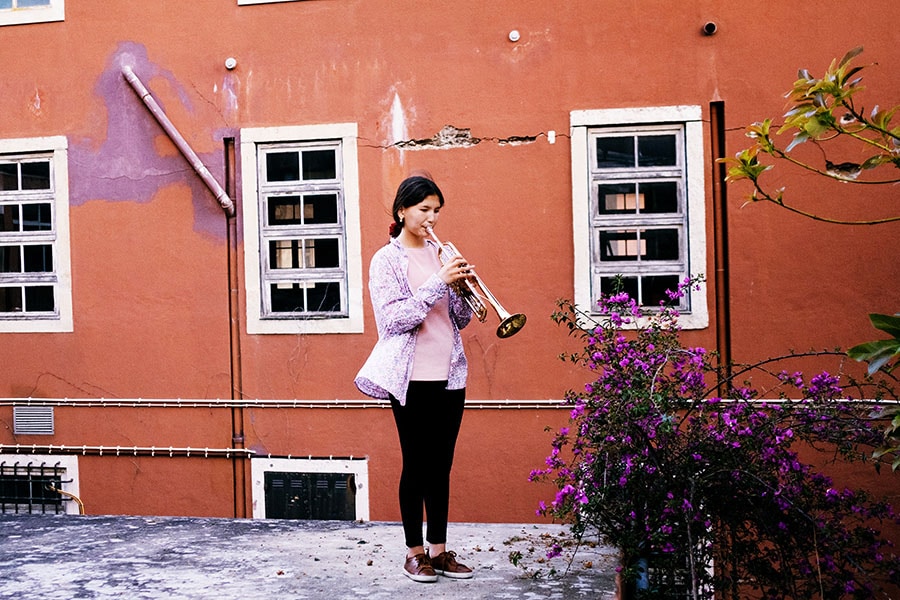
Far from Kabul, building a new life, with music and hope
Under the U.S.-backed government in Kabul, the Afghanistan National Institute of Music had flourished, becoming a symbol of Afghanistan's changing identity. The Taliban had long treated it as a threat. More than 250 students fled and found asylum in Portugal and are now reviving their passion for music
 Zohra Ahmadi plays trumpet at the Afghanistan National Institute of Music compound, in Lisbon, Portugal, on May 8, 2022. Ahmadi was convinced from a young age that she wanted to be a professional musician. (Isabella Lanave/The New York Times)
Zohra Ahmadi plays trumpet at the Afghanistan National Institute of Music compound, in Lisbon, Portugal, on May 8, 2022. Ahmadi was convinced from a young age that she wanted to be a professional musician. (Isabella Lanave/The New York Times)
LISBON, Portugal — On some nights, when her dorm room in Lisbon turns dark and the church bells stop ringing, the young trumpet player thinks about the distant afternoon when her uncle took her to the graveyard to gather stones.
That was in Afghanistan, in the chaotic days after the United States withdrew last year and the Taliban reasserted control. Her uncle had insisted that they pay respects at the family cemetery before they packed their bags with walnuts and spices and books of poems by Rumi, before they began their lives as refugees.
Standing by the graves, she watched as her uncle closed his eyes and listened to the wind. The ancestors, he said, were displeased with their decision to leave Afghanistan. Even the stones, he said, seemed to speak, urging them to stay.
Zohra Ahmadi, 13, could not hear the voices her uncle described. But as she scooped rocks and soil from the cemetery into a plastic container, following her uncle’s instructions, she said she heeded his words and vowed one day to return.
On a sweltering May morning, when the sun had already melted buckets of ice at the seafood market and the priests at Nossa Senhora da Ajuda church were just beginning their morning verses, a series of unfamiliar sounds emanated from the top of a former military hospital in western Lisbon.
©2019 New York Times News Service







